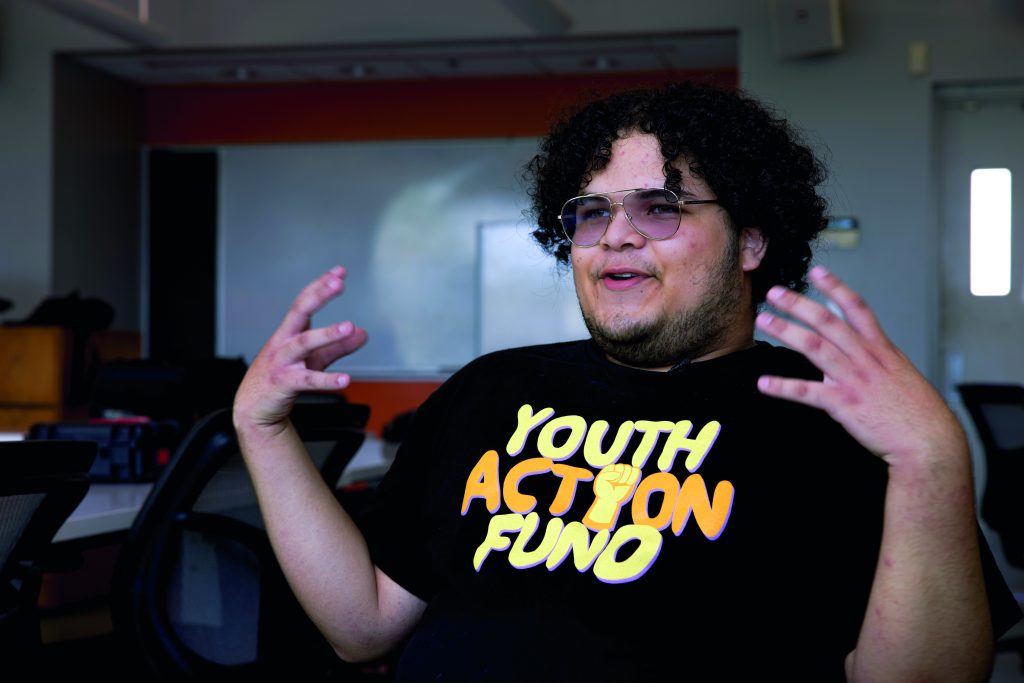Amendment 1: Returning political parties to the ballot
By Kylie Sowers
MAST Academy/Montage
Amendment 1 on the Florida ballot would bring back partisan school board races across Florida following a 20-year hiatus. If adopted, the amendment would list school board candidates on the ballot with their respective party labels, allowing voters to factor the candidates’ political affiliations into their decisions.
Historically, Florida held partisan school board elections up until Amendment 11 was adopted in 1998 to make the elections nonpartisan. Having nonpartisan elections means there are no party labels on the ballot identifying the candidate’s affiliation. Aside from elections, the governor has the power to appoint school board members to fill vacancies.
“It’s not about advancing the prospects of Republicans or Democrats,” said Rep. Spencer Roach, R-North Fort Myers, who sponsored the amendment. “If this becomes law, in some red counties it’s going to mean that more Republicans get elected and in some blue counties it’s certainly going to mean more Democrats get elected.”
School board members in Florida are currently elected by residents who live in the candidate’s district through a nonpartisan election. The board must be composed of at least five members, and each member serves a 4-year term. The school board is responsible for operating and supervising all public schools in the district, including adopting district policies, managing the budget and bargaining district employees’ salaries.
Gregory Koger, a political science professor at the University of Miami who specializes in legislative politics and political parties, said party labels could become a focus, not a point of reference for voters.
“I think the hope was that if the offices were nonpartisan, then people’s voting of school board offices would be based on a real evaluation of the candidates and not just party labels,” Koger said.
Some Miami-Dade public schools students say they are opposed to the proposed amendment – and their argument is that there is no “Democratic” or “Republican” way to learn.

“I’m not too fond of Amendment 1 because it allows for political theatrics to take over the school board, so now it’s not serving students but political parties, and it may cause further polarization, which would be detrimental to our school district,” said Artemis Cruz, a member of the Youth Action Fund, a collective of Gen-Z activists opposed to the conservative culture agenda.
Some amendment opponents point to recent conservative decisions made by the school board, including a 5-3 vote against a proclamation naming October as LGBTQ history month. According to Political Cortadito, a South Florida blog site, two of the school board members who voted against the proposal – Roberto J. Alonso and Monica Colucci – were hand-picked for their respective elections by Gov. DeSantis, and two others – Mary Blanco and Danny Espino – were appointed by him.
“Our voices and our concerns should definitely be heard and should definitely be represented when it comes to their decisions,” said Roberto Carmona, a senior at Hialeah Miami Lakes Senior High and president of the District Student Government Association.
Defending the amendment, Rep. Roach said parents want to know the candidates’ values and party affiliations to help them determine where they stand on such issues as school funding and curriculum.
Students in favor of the amendment agree with Roach that it will bring transparency to the race.
“Passing Amendment 1 doesn’t mean our schools will do what one party does over the other,” said Dayan Jimenez, a senior at Barbara Goleman Senior High. “It is unrealistic to say that having partisan elections would have more harm than not, when in actuality we elect a majority of our elected seats in such a way.”
Sixty percent of voters are needed to pass the amendment. If adopted, it will take effect for the next school board races in 2026.